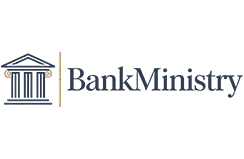There are many things to consider and decide when starting a business, especially when it comes to financing. Opening a business bank account and understanding how it works is one of the most important things for a business. This guide clearly explains the process and provides startup founders with the information they need to manage their funds effectively and grow their business.
The Importance of Commercial Banking
Keeping your personal and work money separate is not only a good idea, it’s the key to success. Opening a separate bank account for your business can help you keep track of your finances, simplify your budget, help you file your taxes, and build trust between your business and your customers, suppliers, and investors. Most importantly, it protects your assets and ensures that your financial records are accurate and legal.
Choosing the Right Business Bank Account
Most new businesses open a business checking account and a business savings account when they start. A business bank account can help you manage your day-to-day affairs, pay bills, receive payments, and cover business expenses. A business savings account, on the other hand, allows you to save money for emergencies, taxes, or planned purchases. As your business grows, you may want to consider opening an account. For example, a business account to accept credit card payments, or a payroll account to make paying your employees easier.
Choose the bank that best suits your needs
The best bank for you depends on your new business needs. Many banks offer low-cost or free services to small businesses, while some banks are experts in digital banking with advanced mobile and online banking tools. Think about how easy it is to contact the bank, how reliable the customer service is, and whether the bank offers specific help or advice for entrepreneurs. Many online banks and credit unions are also good options for new businesses looking to save money and access more services. Feel free to compare multiple banks before making your choice.
Prepare the required documents
There are a number of documents required to open a business bank account. Typically, you’ll need an Employer Identification Number (EIN) from the Internal Revenue Service (IRS) and a few documents to set up your business, such as your articles of incorporation or partnership agreement. In addition to a valid photo ID for each owner or partner, you may also need a business license or work permit. Having these documents ready before you apply will help speed up the process and ensure a smooth account opening process.
Log in
Choose a bank and prepare all necessary documents. Then, you can open your business account. Sometimes, you can complete this process in person or online, depending on the bank. You can choose options like overdraft protection and online access when you set up your account. You’ll also receive account information, such as debit cards and checks. If your business has multiple owners or financial controllers, you can list approved users. Check with your bank to see if there are any new offers or discounts for business accounts.
Set up online and mobile banking
After you open an account, you can sign up for online and mobile banking services. These tools allow you to access your account at any time and view your balance and activity. You can also send checks, pay bills, and transfer money between accounts. Being able to view your financial status in real time from your phone or computer saves you time and allows you to respond more quickly to the needs of your business.
Connect to Accounting Software
Connecting your business bank account to an accounting program like QuickBooks, Xero, or Wave makes it easier to keep track of your finances and money. This allows for instant recording of transactions, reduces manual data entry errors, and makes it easier to track money coming in and going out. Integration with accounting software also makes it easier to generate financial reports and tax forms, so you can keep track of your records and make smart business decisions.
You may only use your business account
When you are conducting business for your business, you must use your business bank account. Deposit all of your income into this account and use it to make payments and purchases. Do not use your own money or accounts for business purposes. This clear financial department ensures that loyalty taxes and salaries. Talk to your bank about which services can help you grow the most and see if you can save money by adding these services.
Monitor and manage your money
A good financial habit is to regularly check your bank account and compare it to your accounting records. This can help you spot errors, gain a better understanding of your income and expenses, and better plan for future expenses. By keeping track of your finances, you can better manage your cash flow, create a budget, prepare for taxes, and make business decisions that will help your finances grow.
It is very important to have a strong relationship with your bank
A good relationship with your bank can help you in the long run. As your business grows, you may need a loan, line of credit, or financial assistance. Businesses with a good banking reputation are more likely to receive favorable terms and open services from banks. Take the time to talk to your banker regularly, especially as your needs change. Hiring a trusted expert who understands your business can make a big difference in your financial success.
In Summary
Everyone who wants to start a business needs to understand merchant banking. Opening a business bank account can make bookkeeping and tax filing a lot easier and make your business look more professional. The steps in this guide will help you build a strong financial foundation for your startup: choose the right accounts, the right bank, get online access, and manage your money carefully. Your banking needs will change as your business grows, so stay in touch with your bank and continue to learn how to make the most of your financial resources. A good bank account is more than just a place to park your money; it’s a useful tool that can help you grow and achieve long-term success.




